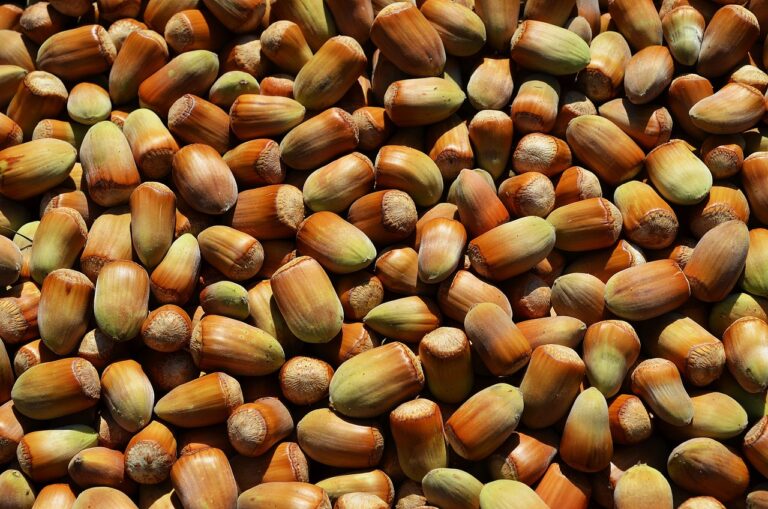Exploring Opportunities for Food Exports to Singapore
silverexch com, goldenexch create account, betbook247 com login: Singapore has long been known as a hub for international trade and commerce. With a strong economy and a diverse population, the small island nation offers plenty of opportunities for businesses looking to expand their markets. One area that has been gaining traction in recent years is the food export industry.
As Singapore continues to grow and develop, there is an increasing demand for high-quality food products from around the world. This presents a golden opportunity for food exporters to tap into this lucrative market. In this article, we will explore the various opportunities for food exports to Singapore and how businesses can take advantage of them.
Understanding the Singaporean Market
Before delving into the specifics of food exports to Singapore, it is crucial to have a good understanding of the local market. Singapore is a melting pot of cultures, with a diverse population that enjoys a wide variety of cuisines. This means that there is a strong demand for all types of food products, from fresh produce to processed goods.
Additionally, Singaporeans are known for their discerning tastes and high standards when it comes to food. They value quality, safety, and authenticity, which means that food exporters need to ensure that their products meet these stringent requirements. By understanding the preferences and needs of the Singaporean market, businesses can tailor their offerings to meet demand effectively.
Opportunities for Food Exports
There are several key opportunities for food exports to Singapore that businesses can explore. Some of the most promising sectors include:
1. Fresh Produce: Singapore imports a significant amount of fresh produce, including fruits, vegetables, and seafood. There is a growing trend towards organic and sustainably sourced products, presenting an opportunity for exporters in this space.
2. Processed Foods: Processed food products such as snacks, canned goods, and ready-to-eat meals are also in high demand in Singapore. Businesses that offer healthy, convenient, and innovative products stand to benefit from this trend.
3. Specialty Foods: Singaporeans are always on the lookout for unique and exotic food products from around the world. This includes items such as gourmet foods, specialty ingredients, and artisanal products.
4. Health and Wellness Products: With an increasing focus on health and wellness, there is a growing demand for health foods, supplements, and functional beverages in Singapore. Exporters that cater to this niche market can find success in the country.
5. Halal Food Products: Singapore has a sizable Muslim population, which has created a demand for halal-certified food products. Businesses that offer halal foods can tap into this lucrative market segment.
Navigating Regulations and Requirements
When exporting food products to Singapore, businesses need to adhere to strict regulations and requirements set by the Singapore Food Agency (SFA). This includes obtaining the necessary permits and certifications, ensuring product safety and quality, and complying with labeling and packaging standards.
It is essential for exporters to conduct thorough research and due diligence to understand the regulatory landscape in Singapore. Partnering with local distributors or agents can also help businesses navigate the complexities of the market and ensure compliance with all regulatory requirements.
Marketing and Distribution Strategies
Once businesses have identified the right opportunities and met the regulatory requirements, the next step is to develop effective marketing and distribution strategies. Establishing a strong presence in the Singaporean market requires careful planning and execution, including:
1. Building Relationships: Establishing strong relationships with local distributors, retailers, and foodservice providers is crucial for success in the Singaporean market. Networking and building trust with key stakeholders can help businesses secure distribution channels and reach a wider audience.
2. Digital Marketing: Leveraging digital marketing channels such as social media, e-commerce platforms, and online marketplaces can help businesses raise awareness and promote their products to Singaporean consumers. Creating engaging content, running targeted ads, and optimizing SEO can help businesses attract and retain customers.
3. Participating in Trade Shows and Events: Trade shows, food fairs, and industry events are excellent opportunities for businesses to showcase their products, network with potential partners, and generate leads. Participating in such events can help businesses build brand recognition and expand their reach in the market.
4. Offering Competitive Pricing: Pricing plays a crucial role in the success of food exports to Singapore. Businesses need to conduct pricing research, analyze market trends, and offer competitive pricing strategies to attract customers while maximizing profits.
Frequently Asked Questions
Q: What are the key export opportunities for food products in Singapore?
A: Some of the key export opportunities for food products in Singapore include fresh produce, processed foods, specialty foods, health and wellness products, and halal food products.
Q: What are the regulatory requirements for exporting food products to Singapore?
A: Businesses need to adhere to strict regulations and requirements set by the Singapore Food Agency (SFA), including obtaining permits and certifications, ensuring product safety and quality, and complying with labeling and packaging standards.
Q: How can businesses market their food products effectively in Singapore?
A: Businesses can market their food products effectively in Singapore by building relationships with local distributors and retailers, leveraging digital marketing channels, participating in trade shows and events, and offering competitive pricing strategies.
Q: What are some tips for businesses looking to export food products to Singapore?
A: Some tips for businesses looking to export food products to Singapore include conducting thorough market research, understanding regulatory requirements, developing strong relationships with local partners, and implementing effective marketing and distribution strategies.
In conclusion, the food export industry in Singapore presents a wealth of opportunities for businesses looking to expand their markets. By understanding the local market, navigating regulations, and developing effective marketing and distribution strategies, food exporters can tap into this lucrative market successfully. With the right approach and dedication, businesses can take advantage of the growing demand for high-quality food products in Singapore and establish a strong presence in the market.







